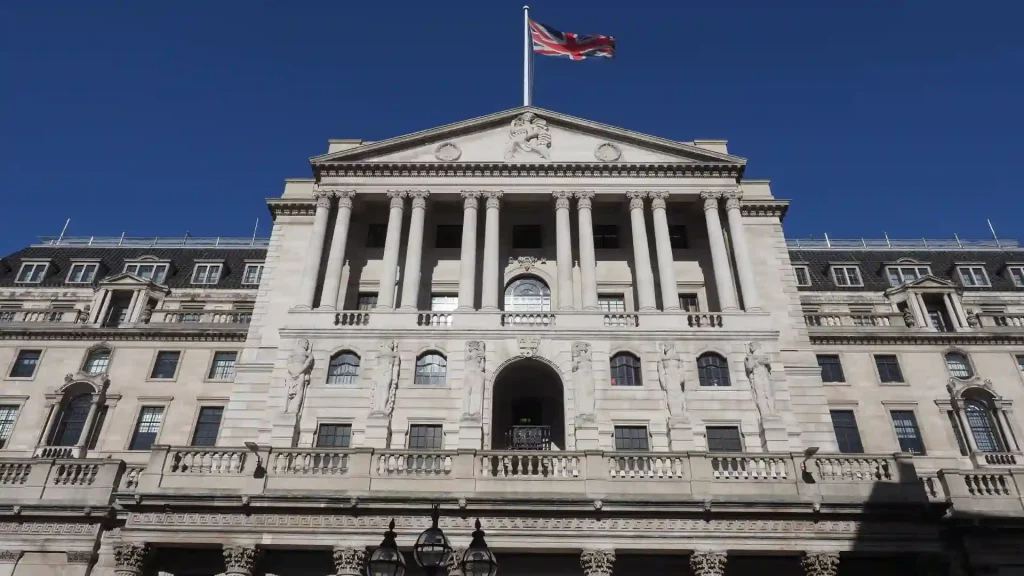The Bank of England chose a bigger rate hike in order to calm the financial markets, but the effectiveness still remains a question.
The Bank of England, in its fight to control inflation, has once again raised the interest rates. The central bank exceeded the expectations of analysts and delivered a rate hike of 50 basis points, taking the total to 5%.
Andrew Bailey, the governor of the Bank of England, said that this rise would inflict a lot of pain and damage on the commoners after raising rates to the highest level in the last 15 years. He added that the situation could worsen if hard steps are not taken now.
The most affected people will be the borrowers who have monthly loan repayment to make as their mortgage will go higher, but it is good news for the saving fraternity. Even Bailey stated that they acknowledge that borrowers will be the most, but the skyrocketed inflation is out of control, and they will have to deal with it.
Mortgages Rates
Mortgage rates have been going higher for the past one and a half years. The average two-year fixed household mortgage is at 6.19%, with the five-year rate being around 5.82%. These were nearly 3% at the same time last year.
As per a typical mortgage tracker, borrowers will have to deal with an additional £47 monthly. Whereas borrowers whose loans are based on standard variable rate (SVR) mortgages will face some less with an increase of £30 monthly. As per records, since December last year, the monthly increase in the repayments of a tracer has gone up by £465, and those on an SVR have soared by £297.
Borrowing costs are also going through the roof. The average annual interest rate on bank overdrafts and credit cards is 21.86% and 20.13%, respectively.
Prime Minister Rishi Sunak is also under constant pressure to curb inflation. He has said that tackling inflation is a tough task and would require stringent measures, inflation has gotten a bit out of hand, and he is constantly working on it. He added that the weekly shop run of citizens has become super expensive, and he will keep a check that such stores operate appropriately and responsibly.
Inflation profiteering is another major mayhem the government is struggling with. Chancellor Jeremy Hunt wrote a letter to Bailey that he would be meeting with regulators in the upcoming week and would discuss how the wholesale discounts could be delivered to the end consumers.
The British Retail Consortium denies profiteering through such measures and conveys that the stores are managing lower prices as much as possible.
Effect on Economy
Rising interest rates make borrowing expensive, leaving a smaller amount in the hands of the consumer to spend on necessities. This, in turn, puts businesses in a dilemma of whether to raise prices or not.
Amidst all of these crises, the economy of the United Kingdom is the one that takes the most hit from every angle. The choked money flow in the economy is suffocating the operability of businesses and not preventing the economy from growing.
A mortgage expert from the property portal Rightmove, Matt Smith, has said that the latest rate hike would not be a surprise for the lenders, i.e., banks majorly. The central bank chose a bigger rate hike in order to calm the financial markets, but the effectiveness still remains a question.
He added that it is assumed that this recent larger rate hike could provide some stability to the mortgage market. This would provide a roadmap for the current mortgage payers and also for people who are looking forward to buying houses later this year.
Government Objection
Labour has said that the government should intervene and order banks or lending institutions to aid mortgage holders with their monthly payments. They gave a suggestion that there should be an alternate option of just paying interest for a short period.
The demands of a government intervention to help mortgage holders have proved to be futile as the Prime Minister and Hunt both have cancelled suggestions of any kind of intervention by the ministers.
The central bank’s Monetary Policy Committee (MPC) had voted 7-2 in favour of a 50 basis point rate hike. MPC is the body responsible for setting the UK interest rates.
Bailey has said that inflation might cool down substantially after a decrease in energy prices. But still, then the central bank would keenly observe inflation and further raise rates if required.
